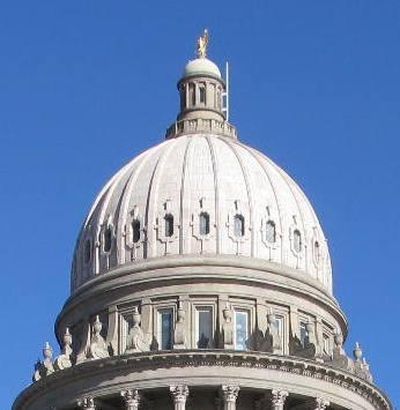Idaho health coverage gap can be closed, lawmakers believe

BOISE – Idaho’s top House and Senate leaders expressed optimism Friday that a new legislative panel can find a way to help the 78,000 Idahoans who fall into a health insurance coverage gap.
Ten lawmakers were named to a bipartisan “working group” charged with examining alternatives for covering those Idahoans who make too much to qualify for Idaho’s limited Medicaid program but not enough to qualify for subsidized health insurance through the state insurance exchange.
Expanding Medicaid to include that gap group was originally part of the federal Affordable Care Act, but the U.S. Supreme Court ruled that’s optional for states. Idaho hasn’t taken action, so its Medicaid program still covers essentially only poor children and the disabled. That’s left the state in the paradoxical position of helping middle-income Idahoans afford health insurance through the new exchange but turning away the working poor because they don’t make enough.
During this year’s legislative session, House Health and Welfare Chairman Fred Wood, R-Burley, said his committee had reached consensus that “what is currently happening is just unfair and wrong.” During a Senate committee hearing, the director of critical care at a major hospital in eastern Idaho told lawmakers the state’s failure to expand Medicaid has resulted in more than 1,000 premature deaths of Idahoans in the past three years for lack of treatment.
Gov. Butch Otter has convened two study groups to address the problem; both recommended accepting millions in federal Medicaid expansion funds, either to expand Idaho’s Medicaid program or, through waivers, to set up a new coverage system for that group.
But the Legislature never acted on the proposals. This year, Otter instead proposed a $30 million-a-year investment into primary care for the gap population, but the proposal was decried for providing doctor visits but not the pricey follow-up or specialist care required for patients who are seriously ill.
Late in the session, the Senate voted overwhelmingly – with just eight Republican members dissenting – to direct the state Department of Health and Welfare to start work on a waiver application to allow Idaho to tap federal Medicaid expansion funds for an Idaho-designed program to provide managed care to the state’s gap population. Lawmakers specified it would cover those who make less than 100 percent of the federal poverty level – the point at which Idahoans are turned away from the state insurance exchange.
The House killed the bill on the final day of the legislative session on a party-line vote, with all Republicans voting no. House Speaker Scott Bedke pledged to push for the working group.
No one from North Idaho was named to the panel, which includes five senators and five representatives, two of them Democrats.
Susie Pouliot, CEO of the Idaho Medical Association, was among a coalition of health care providers and advocates who welcomed the new group’s formation.
“We are eager to find a path forward for the tens of thousands of Idahoans living without affordable medical care,” Pouliot said in a statement from the “Close the Gap Idaho” coalition. “It is vitally important that the work group develop a complete solution that brings our federal tax dollars back to Idaho, replaces our costly and inefficient indigent system and ensures that all Idahoans have full health coverage.”